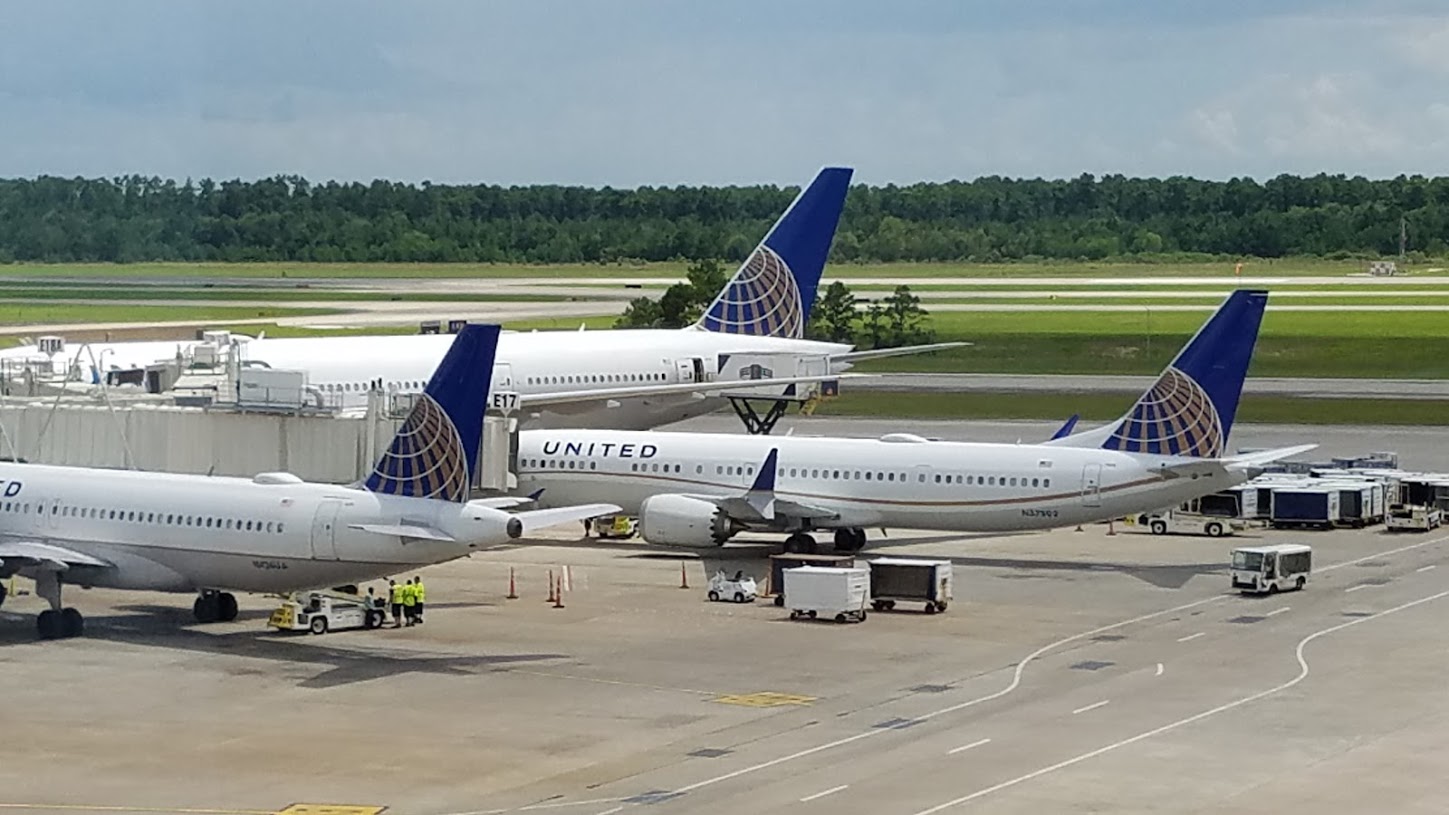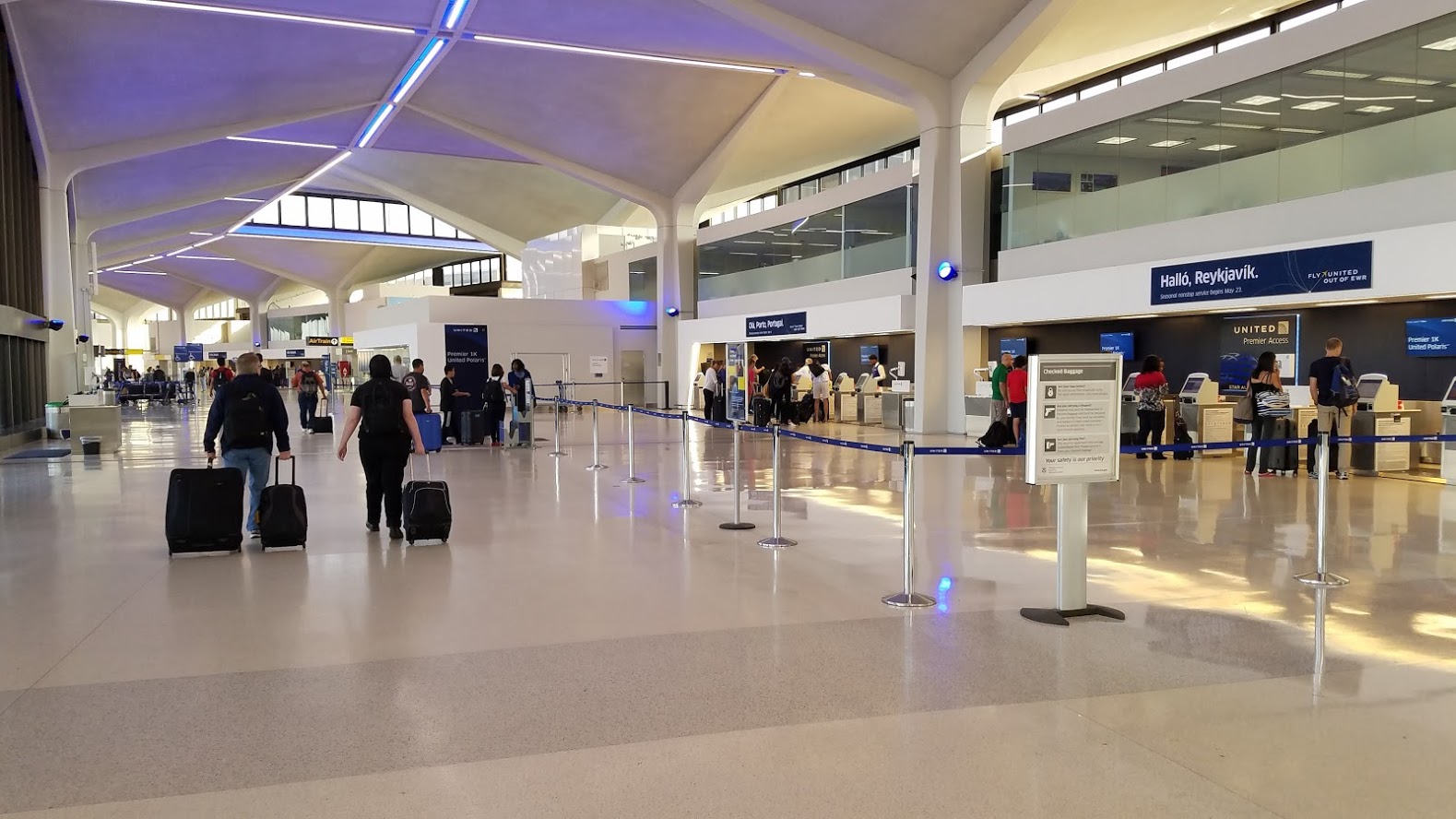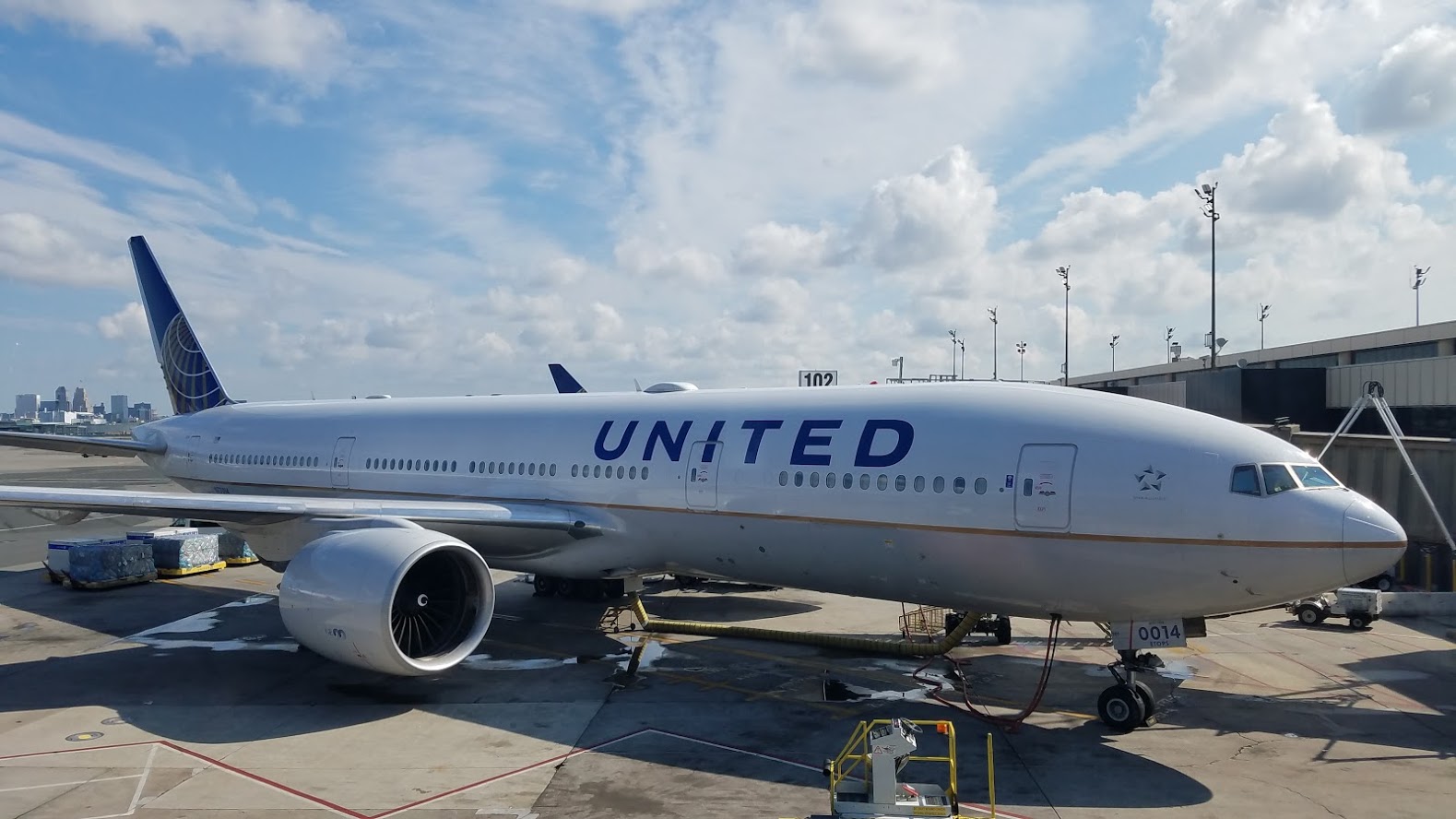New Jersey is considering raising aviation fuel taxes — but only on United Airlines. Currently New Jersey taxes fuel burned during taxi and takeoff. A bill under consideration would extend that to all fuel that United burns (since it applies only to airlines carrying over 8 million passengers per year out of the state).
United’s position “the tax is enacted, she said United might have to consider transferring the bulk of its operations to one of the other hubs.” The extra cost to United is expected to be $20 million. United will not abandon its Newark hub over $20 million.
- United hinted that they would move flights to Washington Dulles. They’ve talked about shifting connecting traffic to Dulles already. Newark has more premium non-stop traffic and limited space.
- A State legislator opposed to the bill thinks four cents a gallon on fuel purchased in New Jersey will shift traffic to Philadelphia. Philadelphia already has more low cost service and significant flights, even an extra $1 per passenger in costs isn’t going to make a further drive worth it and certainly won’t pull lucrative Manhattan traffic.

United has been after PATH train service to Newark for years. They even flew to Atlantic City in exchange for Governor Chris Christie’s support for the project. They just don’t want to be the ones to pay for it. And they oppose use of fuel taxes to fund it.
Federal prosecutors investigated this along with United’s Newark terminal C lease. United ultimately entered into a non-prosecution agreement over influence peddling with the Port Authority of New York New Jersey and its Chairman.

United Newark Terminal C
The ability of people and businesses to move to escape regulations or taxes is a constraint in many cases on just how high taxes can go or how burdensome regulations can get. States and localities are forced to compete.
However once big investments are made which are difficult to move – large capital investments, like airports – there’s a much higher threshold for how much taxation, regulation, and other costs can be imposed. Since you can’t just leave a major airport, $15 minimum wages work there.
Miami airport has lost a lot of flights from low cost carriers moving to Fort Lauderdale. There’s competition across the region’s airports. (American has actually benefited from high airport costs, even though they’re largely the one paying those costs, since it’s meant less direct competition.)
But the Port Authority of New York New Jersey manages the other major airports in the area as well, there’s no real competition – other than Amtrak for short haul, buses, and private jets – for the airports they control.
Airports that are looking to attract flights away from others in the region need low costs. Airports where service is marginal need low costs. Washington Dulles has perennially been on the chopping block as a United hub, costs there matter. And if you want the airport to grow costs matter a great deal too, marginal flights quickly move from being something an airline might try and could potentially make or lose money to one that models suggest are more likely to be money losing and won’t get launched.
The major New York airports are full. They don’t have enough gates. There is more airline demand for flying in and out of New York than there is capacity to support that flying. So they’re in a position where they can grow costs and still be full even if the composition of airlines and flights were to change. That’s largely true at at Washington National and at LAX.
Capital investment isn’t the only lock-in of course. Sometimes it’s clusters of talent, network effects, like in Silicon Valley. Tech companies don’t leave Silicon Valley because of California taxes or business regulations. The money is there, workers are there, and peer companies are there — and it’s far higher cost for everyone to move together and in tandem. Southern California weather and the state’s coastline are similar benefits in this regard.
It’s never clear in advance exactly how far a government can push extracting resources from businesses in its jurisdiction. But Silicon Valley tech companies aren’t fleeing, and United isn’t going to pull out of Newark either.
New Jersey gets all of this — they are targeting the tax increase at United, who will not leave, and exempting smaller carriers with fewer flights that haven’t made a big investment in a Newark hub. That’s problematic on many levels as well as being smart.

United protects its government-granted privileges and seeks to avoid government-granted advantages other airlines might gain against it.
It’s reasonable for them to be unhappy with a proposal to tax their operation but not competitors’ — just like it’s reasonable for businesses to be unhappy with tax credits given to large companies and new firms entering a state giving them advantages over existing business. That’s the sort of cronyism endemic in the system and United would be wise to fight it more broadly and more consistently.
(HT: Live and Let’s Fly)


A monopoly supplier being overcharged by another monopoly supplier. You have to love the irony.
Agreed. United isn’t going anywhere. They already regret pulling out of JFK.
All these reports of people leaving NYC and Cali due to high taxes are nonsense. People will go broke trying to live and work here.
Having direct access to PATH would be a MAJOR triumph for UA/EWR and passengers! WTC Direct 6 stops, 33rd with a connection. UA paid more for the dysfunctional DIA baggage sorting system.
Buh bye United
So so sad
Don’t let the door hit your fat backside on the way out, Oscar. Adios.
The same was said about car companies in Detroit.
Gary said: “But Silicon Valley tech companies aren’t fleeing, and United isn’t going to pull out of Newark either.” I do not agree with this. (a) To begin with, Silicon Valley name was due to chips made out of silicon. For the most part, silicon chips are not made in Silicon Valley, because cost are too high. (b) There has been a steady outflow of companies from Silicon Valley to Texas, Nevada, and other low cost states. (c) WTH. I live in New York city. Due to costs, companies have been relocating relocating due to high costs for as long as I can remember. In fact on May 2, 2018, AllianceBernstein Holding LP announced that it is moving its corporate headquarters and about 1,050 jobs to Nashville, Tennessee. (d) You are correct that UA will probably not entirely pull out of Newark. However, United makes a cost calculation on every flight into Newark. If United reduced its presence in Newark by 30% in Newark, it would be a big deal.
@Phil: that’s flat out not true. State budgets aren’t suffering [yet] because tech and finance are not sectors that are hurting right now, but the tax base is shrinking, and in a downturn the state budgets are F’d. The unfunded pension liabilities for public sector employees in high benefit states are a looming disaster.
United won’t pull out, but smaller carriers currently under the 8 million mark will make sure to stay under it. Which stifles competition, and increases costs for consumers. This is a bad bill
I believe United currently moves 28 million people out of NJ, so there is no way to even lease airport slots or cut flights to get under the threshold.
Gary said: “The major New York airports are full. They don’t have enough gates. There is more airline demand for flying in and out of New York than there is capacity to support that flying. So they’re in a position where they can grow costs and still be full even if the composition of airlines and flights were to change. That’s largely true at Washington National and at LAX.”
Economists and business people, think in both the short and long run. In the short run, competition is limited. In the long run, there are many airports that could be competition. Everyone remembers how the knighted Sir Frederick Alfred Laker opened up the London markets by flying out of “Gatwick”. I cannot think of similar airport out of New York. [Well, maybe Stewart (SWF) and Westchester Airport (HPN)]. However, LAX is easier. In recent memory, LAX was losing significant air traffic to ONT due to costs and had to become more competitive. An LAX Official Statement ($425,000,000 DEPARTMENT OF AIRPORTS OF THE CITY OF LOS ANGELES, CALIFORNIA LOS ANGELES INTERNATIONAL AIRPORT Subordinate Revenue Bonds 2018 Series C), “According to statistics, LAX is the dominant airport in the primary area, with approximately 77.2% of the total enplaned passengers in Fiscal Year 2017.” This percentage of total enplanements probably meets the legal definition of oligopoly (which causes some to wax eloquent about the evils of oligopoly). However, in the Los Angeles area, there are numerous public airports (ONT, BUR, SNA, LBG, PST, BFL, IPL, CQR, SAN, PBP, SBA, SMX, OXR) that are potential competition. In addition, there are military airports, private airports, and open fields that could also be converted to public airports by an enterprising entrepreneur (although most of those entrepreneurs are probably moving to Texas or Nevada right now due to regulations and taxes). LAX also competes for international business with airports such as SFO, SEA, DFW, and ORD. LAX can only increase prices by so much, before some significant percentage of the air traffic moves to other airports.
Uh yea, its New York, United isn’t going anywhere. And they resigned their lease at Dulles until 2050 and are in the works of expanding. Calm down.
United won’t leave EWR. They’re not even able to get back to JFK.
Any mention of MIA and extraordinary high costs should include nepotism, cronyism, collusion, kickbacks, mismanagement, fraud and whatever else is operationally illegal. (See Concourse D otherwise described as the North Terminal).
US News 8-30-18: “TRENTON, N.J. (AP) — New Jersey’s gas tax will climb by 4.3 cents a gallon, or more than 10 percent, under a bipartisan law enacted in 2016, Democratic Gov. Phil Murphy’s administration said Thursday. The 41.4 cent-per-gallon rate will go into effect on Oct….” No worries, the big oil companies will pay for this increase, n’est-ce pas? No increase at the pump for everyday New Jersey residents trying to get to work. Likewise, I am sure the greedy United will pay 100% of the increased fuel tax. Sure. Everyone knows that companies eat taxes and do not pass them on to the consumer. Further, everyone know that the more you tax and spend and regulate, due to the multiplier effects, the more wealth increases. Pelosi said so. So did my freshman economics teacher. It must be true……….LOL in La La Land.
UAL’s threats are like its management team and Board of Directors… stupid. UAL left JFK hoping Jeffy’s sleazy agreement would make UAL the King of Newark. It did not happen and it’s too bad he wasn’t indicted. Now they wish they could get back to Terminal 7. By leaving JFK, UAL continued its slide toward 3rd class status. Now they’re going to leave Newark for Dulles….hahahah. Just imagine all those International customers flying from LGA to Dulles. Oh wait….UAL mgt will likely pick a fight about LGA and then have NO NY Metro presence. I wonder…is UAL adopting the RYAN AIR model????
I guess NJ needs to raise cash so United was an easy target. Chris Christie left the state broke.
Don’t like Chris Christie either. He is one of the reasons that the gas tax was so high to begin with.
The present situation is like saying that a State will tax gas for automobiles but only the small amount they use on the gas station forecourt with the rest tax free. It is obviously ridiculous and shifting to all fuel pumped in State clearly sensible.
The exception for airlines carrying less than 8m passengers is, however, problematic and United should fight that.
It’s certainly true that UA isn’t going to leave EWR over a new unfair tax, but that’s still no way to treat one your largest and most important state employers. Good things happen to airports when you treat your tenants well. Look at Charlotte, that’s become a huge larger-than-you’d-expect-it-to-be hub for AA because airport management has been excellent and has treated AA and its predecessor companies very well. Next time UA management has to decide whether to invest more money in EWR they will undoubtedly consider their tax rate and how business-friendly they feel the local authorities are.
@ Other Just Saying — You are correct about the NJ gasoline tax. For decades, residents of nearby states bought gas in NJ when they were passing through because the prices were cheaper. Last year, NJ significantly raised gasoline taxes and travellers stopped buying gas in NJ. Because this unsurprising behavior caused tax revenues to be below expectations, the law has an automatic kicker to raise gas taxes again. Undoubtedly, this will cause gasoline sales to decline again. So there will probably be another gas tax increase next year! And now, instead of out-of-staters paying for a good chunk of their highway budget, NJ residents have to shoulder more of the burden. Brilliant.
@Phil: “All these reports of people leaving NYC and Cali due to high taxes are nonsense. People will go broke trying to live and work here.”
Actually, Phil you should look at the data before opening your mouth.
People are leaving in droves:
http://www.sandiegouniontribune.com/opinion/the-conversation/sd-california-losing-low-income-people-gaining-wealthy-people-per-report-20180221-htmlstory.html
and major companies too.
@Rob “The same was said about car companies in Detroit.”
It was said correctly. Not a single import set up in costly Detroit. The city’s population halved from 1970-2010 (https://en.wikipedia.org/wiki/Demographic_history_of_Detroit) reflecting higher taxes, the union monopoly, and regulation. Median house price today in the city of Detroit is $32,000.
Welcome to an object study in basket cases.
Ch. 1: People leave a place by not going there.
The article is spot on in the short and medium term but not in the long term.
Long Island, NY was the hot bed of aviation. It later moved to Los Angeles. The Los Angeles (or Southern California) area no longer makes any aircraft for practical purposes.
The DC-9, MD-11, 717 are no longer made. The factories are closed.
The L-1011 is no longer made. No replacement.
Convair in San Diego is long closed. No Convair 990 replacement.
The military transport C-17 factory is closed.
All dead.
Images Taken From Space In Different Years Show 2 Very Different Californias https://www.theinforadar.com/2019/05/images-taken-from-space-in-different.html